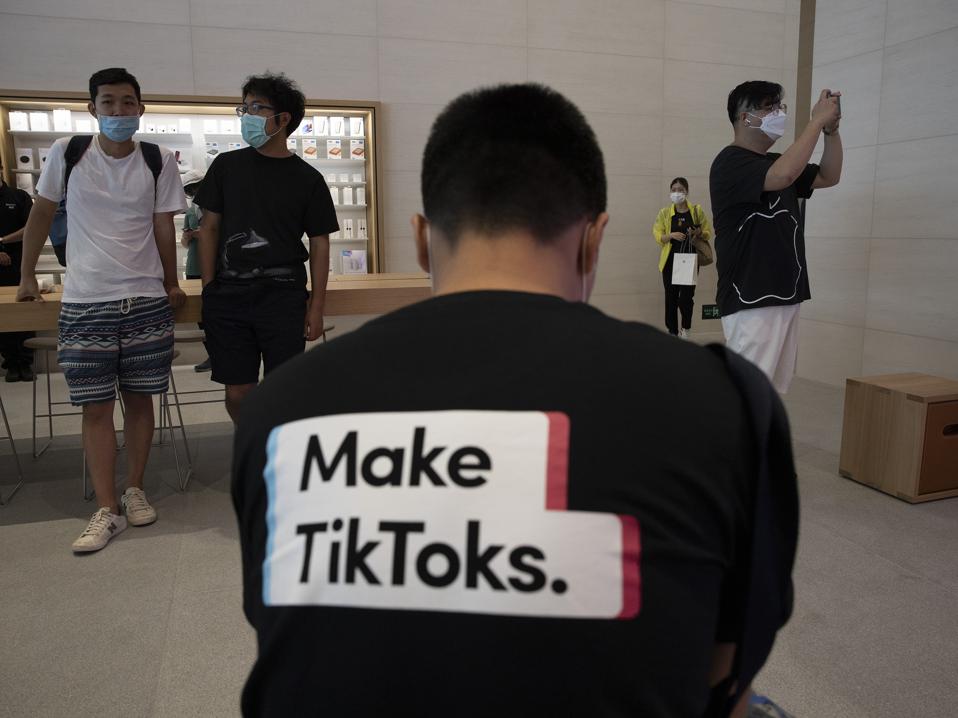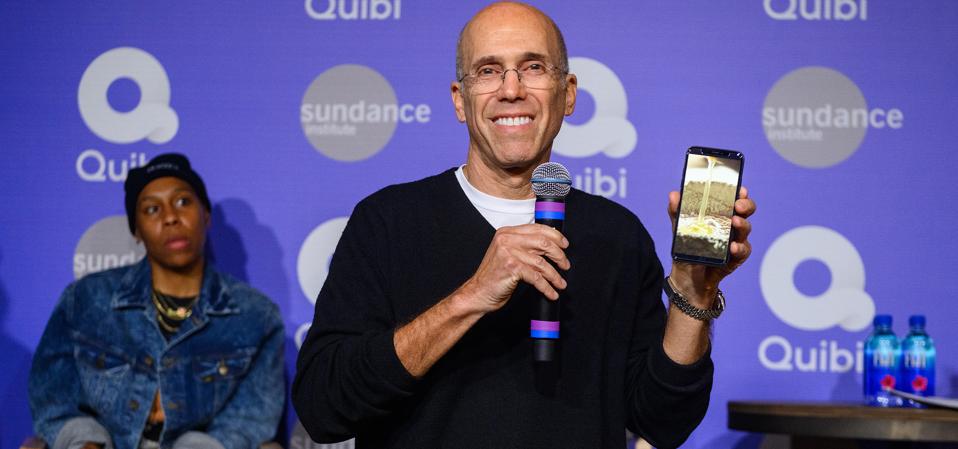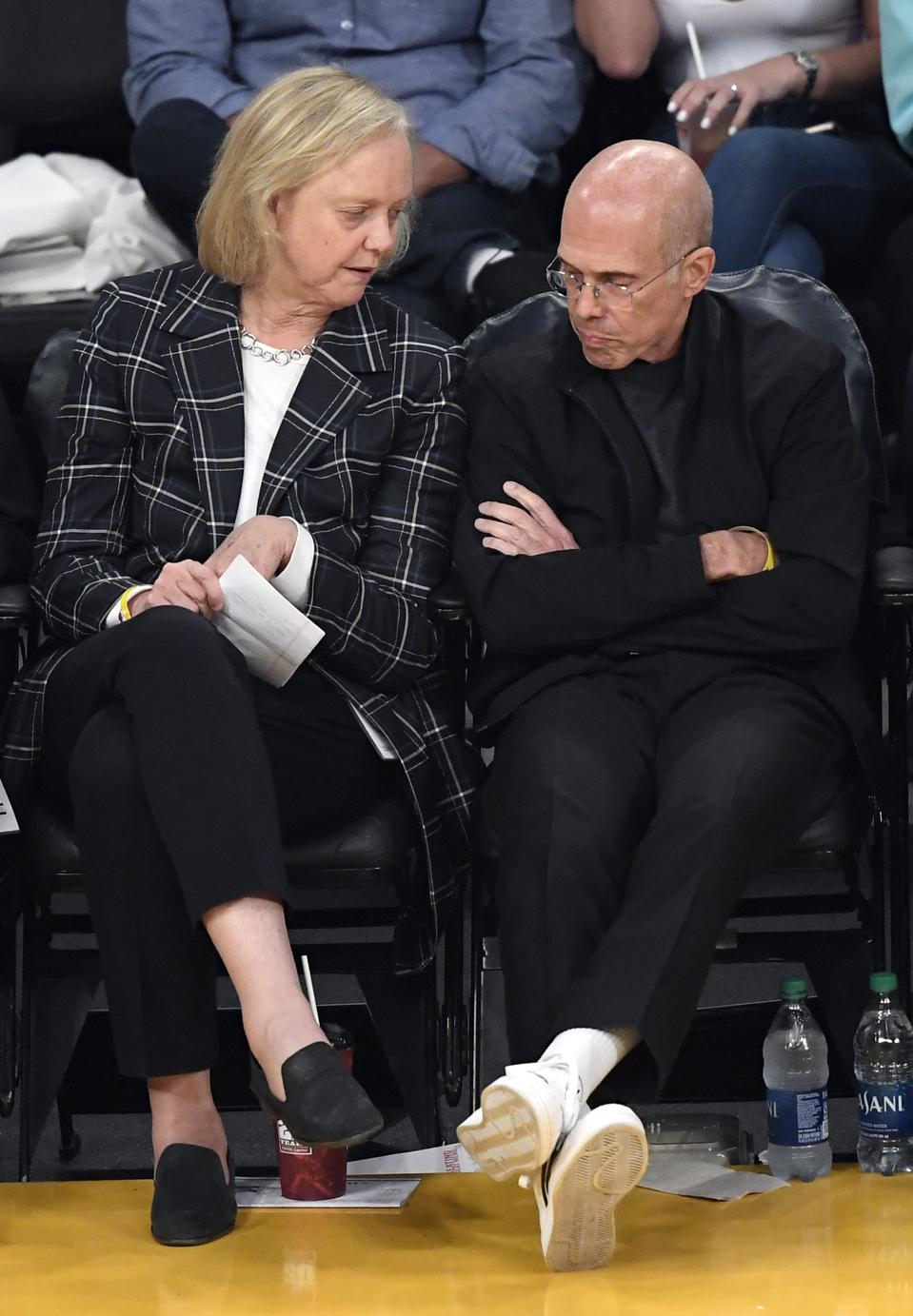
A man wearing a shirt promoting TikTok.
ASSOCIATED PRESS
TikTok, the Western social video app, from ByteDance, a major Chinese interactive entertainment company, has become a cause celebre with Donald Trump on one side wanting to ban TikTok, and others contending it is a restraint of free speech and an illegal action by the Trump Administration.
TikTok is the up and coming mobile video app that is growing rapidly in the U.S. and is hugely popular in India and other countries around the world. TikTok has also been recently banned by the Indian Government, in part due to the border tension between China and India.
Due to the Trump Administration’s action against TikTok, ByteDance has been in discussions with Microsoft, Oracle and others, such as Walmart, who has confirmed they are discussing the deal with Microsoft.
TikTok is all about super short video. Another major competitor in the short video digital world is Quibi which launched earlier this year, at a price tag of $4.99 or $7.99 a month, with or without ads respectively.

Jeffrey Katzenberg, Founder and Chairman of Quibi, promotes Quibi at the Sundance Film Festival in … [+]
GETTY IMAGES FOR QUIBI
Quibi received close to $2 billion in financial backing, and was founded by Jeffrey Katzenberg who is Chairman. Katzenberg is well-known in Hollywood as an entertainment and creative success, having co-founded DreamWorks SKG, as well as being the past CEO of DreamWorks Animation. Katzenberg was Chairman of Disney Studios for 10 very successful years before DreamWorks. Katzenberg

Meg Whitman, CEO of Quibi, and Jeffrey Katzenberg, founder of Quibi at a Los Angeles Lakers game.
GETTY IMAGES
recruited Meg Whitman, the former CEO of eBay EBAY -5.3% and former Republican nominee for Governor of California in 2010, to be the CEO of Quibi.
TikTok and Quibi are both short-form, but otherwise these two companies are wildly different. Perhaps the most significant difference is how Quibi and TikTok differently define “short”. Let’s take a look at the key differences between TikTok and Quibi and consider how these differences have led to big success for TikTok, and failing fortunes for Quibi, which is rumored to be considering eliminating their subscription fee and becoming free.
Short-form: While Qubi defines short-form content as 10 minutes, about 100 million Americans have demonstrated with their deep engagement with TikTok, that they prefer truly short videos – no longer than 1 minute and often as short as 15 seconds. In today’s world with multi-tasking run rampant, multiple devices grabbing our attention, and the fast-paced tempo and “click-bait” of digital content, 10 minutes is not really short. Maybe for a senior citizen, but not for a member of the Z or Millennial Generations. Under the category of short hits of digital entertainment, TikTok is besting Quibi.
Pricing: Consumers have shown a deep affection for long-form TV and film content, including a willingness to pay for that content on services like Netflix NFLX -5% and Disney Plus, as well as the majority of American households that subscribe to traditional pay cable and satellite TV. But the advertising supported video content services, like YouTube, Instagram, Facebook, Snapchat, TikTok and others show the great affection of consumers for free content. In the realm of pricing, TikTok’s free content is beating out Quibi’s paid content.
Virality: TikTok makes it super easy to share a video you like (or made) with others by email, posting to Facebook, Instagram, Snapchat, as well as Whats App, Twitter, Facebook Messenger, and text messaging. Yet, Quibi has spurned viral sharing opportunities. Similarly you can readily find TikTok content on YouTube, Facebook, Instagram and other services where TikTok compilations have become top performing videos. Quibi’s content distribution strategy is focused on the Quibi app.
Authenticity vs. Stars: In many cases Quibi has followed the paradigm of traditional Hollywood with big budgets (by digital terms), known actors and famous writers. TikTok’s content is authentic,

TikTok has its own stars.
LOS ANGELES TIMES VIA GETTY IMAGES
refreshing, and relatable because it is created by your relative, your neighbor, or your buddies at school and work. TikTok takes the day for authentic content that appeals to Every-Person (the more modern version of the Everyman concept). Plus, TikTok content is free to make (for TikTok) while Quibi has expensive writing and production budgets for their content.
Additionally, TikTok content has something for everyone from travel and cooking to life hacks, workout tips, and of course, the famous TikTok challenges and dances. A unique type of content has also risen up on TikTok, what I call “intergenerational content”. Perhaps it is driven by the at-home scenario being lived by some many families during the Covid pandemic.
But whatever the reason, TikTok is a great place to find siblings goofing off together, kids and their parents acting out short-skits and interactions, and even a popular Grandma cooking with her grandson. Most TikTok accounts are registered to teens and young adults, but Mom and Dad, plus others from the older generations are hanging out on TikTok too.
When you consider these factors it is not surprising to see that TikTok is riding a tidal wave of consumer appeal, while Quibi is floundering.